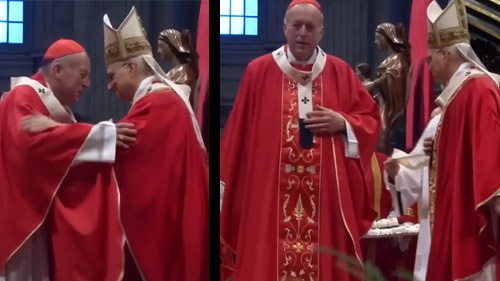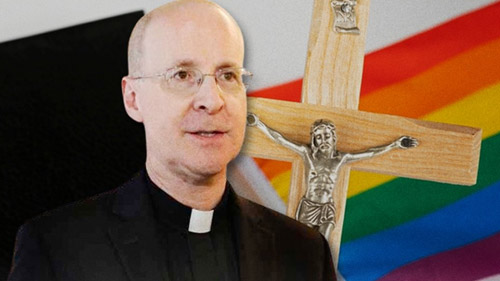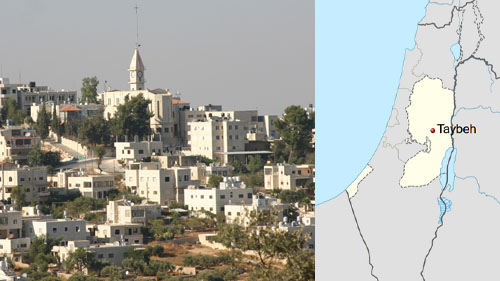| Recent Featured Videos and Articles | Eastern “Orthodoxy” Refuted | How To Avoid Sin | The Antichrist Identified! | What Fake Christians Get Wrong About Ephesians | Why So Many Can't Believe | “Magicians” Prove A Spiritual World Exists | Amazing Evidence For God | News Links |
| Vatican II “Catholic” Church Exposed | Steps To Convert | Outside The Church There Is No Salvation | E-Exchanges | The Holy Rosary | Padre Pio | Traditional Catholic Issues And Groups | Help Save Souls: Donate |  |









 " />
" /> " />
" /> " />
" /> " />
" /> " />
" />




Man looking for information online about pressure cookers gets a visit from a joint terrorism task force
Phillip Bump theatlanticwire.com Michele Catalano was looking for information online about pressure cookers. Her husband, in the same time frame, was Googling backpacks. Wednesday morning, six men from a joint terrorism task force showed up at their house to see if they were terrorists. Which prompts the question: How'd the government know what they were Googling? Update, 7:05 p.m.: Because the Googling happened at work. The Suffolk County Police Department released a statement this evening that answers the great mystery of the day.
Original article: Catalano (who is a professional writer) describes the tension of that visit. The men identified themselves as members of the "joint terrorism task force." The composition of such task forces depend on the region of the country, but, as we outlined after the Boston bombings, include a variety of federal agencies. (The photo above is from the door-to-door sweep in Watertown at that time.) Among those agencies: the FBI and Homeland Security. As of this afternoon, it was still not clear which agency knocked on Catalano's door. The Guardianreported that an FBI spokesperson said that Catalano "was visited by Nassau County police department … working in conjunction with Suffolk County police department." (Catalano apparently lives on Long Island, most likely in Nassau County.) Detective Garcia of the Nassau County Police, however, told The Atlantic Wire by phone that his department was "not involved in any way." Similarly, FBI spokesperson Peter Donald confirmed with The Atlantic Wire that his agency wasn't involved in the visit. He also stated that he could not answer whether or not the agency provided information that led to the visit, as he didn't know. Local and state authorities work jointly with federal officials on terror investigations similar to the one Catalano describes. Both Suffolk and Nassau County's police departments are members of the FBI's Joint Terrorism Task Force (JTTF), Donald confirmed. Suffolk County is also home to a "fusion center," a regionally located locus for terror investigations associated with the Department of Homeland Security. It wasn't the JTTF that led to the visit at Catalano's house, Donald told us. The task force deputizes local authorities as federal marshals, including some in Suffolk and Nassau, who can then act on its behalf. But, Donald said, "officers, agents, or other representatives of the JTTF did not visit that location. Ever since details of the NSA's surveillance infrastructure were leaked by Edward Snowden, the agency has been insistent on the boundaries of the information it collects. It is not, by law, allowed to spy on Americans — although there are exceptions of which it takes advantage. Its PRISM program, under which it collects internet content, does not include information from Americans unless those Americans are connected to terror suspects by no more than two other people. It collects metadata on phone calls made by Americans, but reportedly stopped collecting metadata on Americans' internet use in 2011. So how, then, would the government know what Catalano and her husband were searching for? It's possible that one of the two of them is tangentially linked to a foreign terror suspect, allowing the government to review their internet activity. After all, that "no more than two other people" ends upcovering millions of people. Or perhaps the NSA, as part of its routine collection of as much internet traffic as it can, automatically flags things like Google searches for "pressure cooker" and "backpack" and passes on anything it finds to the FBI. Or maybe it was something else. On Wednesday, The Guardian reported on XKeyscore, a programeerily similar to Facebook search that could clearly allow an analyst to run a search that picked out people who'd done searches for those items from the same location. How those searches got into the government's database is a question worth asking; how the information got back out seems apparent. It is also possible that there were other factors that prompted the government's interest in Catalano and her husband. He travels to Asia, she notes in her article. Who knows. Which is largely Catalano's point. One hundred times a week, groups of six armed men drive to houses in three black SUVs, conducting consented-if-casual searches of the property perhaps in part because of things people looked up online. But the NSA doesn't collect data on Americans, so this certainly won't happen to you.Sign up for our free e-mail list to see future vaticancatholic.com videos and articles.
Recent Content
^